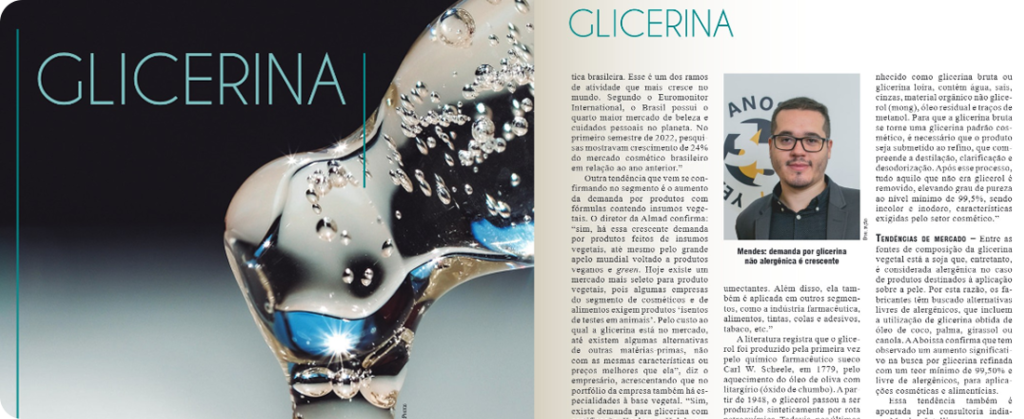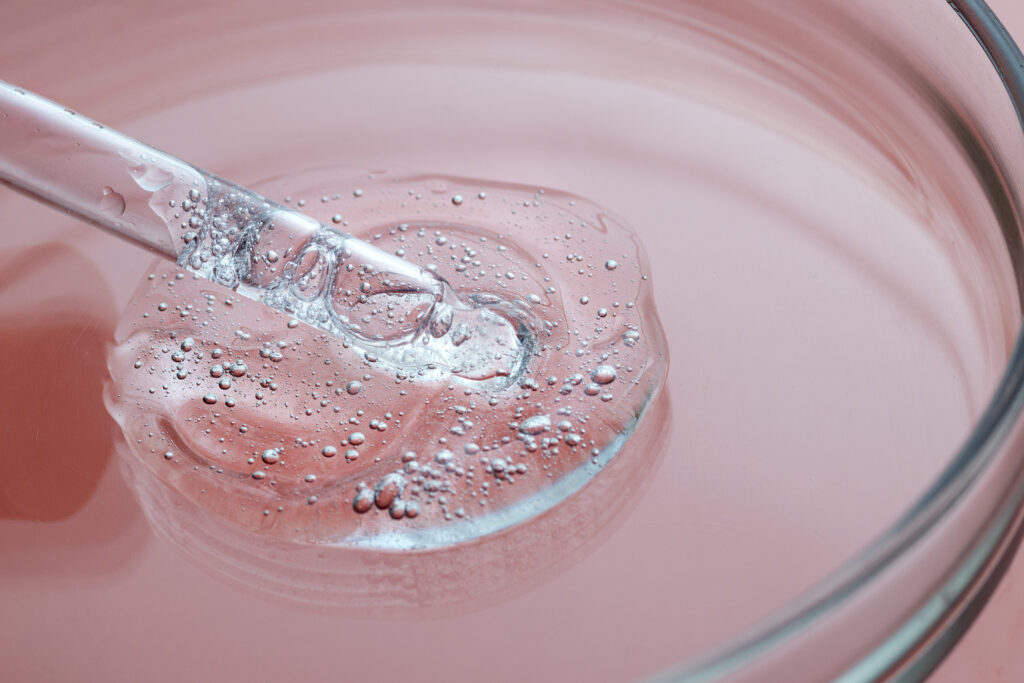
We participated in the special edition of the Química e Derivados magazine. Our expert Renan Fernandes, shared insights into the glycerin market and the impact that will be generated with the introduction of Diesel B15.
The article highlights the difference between glycerin produced chemically and that produced fermentatively. In the first, it is obtained from the hydrolysis of oils and fats, while in the second, it is obtained through the fermentation of sugars. Both methods result in obtaining pure glycerin, widely used in the cosmetics, pharmaceutical, food, paint industries, among other sectors. In Brazil, the predominant chemical route obtains refined glycerin with a purity of 99.50% through the hydrolysis of animal fats and vegetable oils, meeting the demands of the cosmetic sector through the refining process.
Perspectives and challenges
Renan addresses the current scenario of glycerin production and export in Brazil. Firstly, the expert highlights that the country is a major producer due to the production of biodiesel. Furthermore, he highlights that China and the European Union are the main markets for Brazilian glycerin. Next, Renan emphasizes that the increased demand for personal hygiene and household cleaning products during the pandemic boosted the consumption of refined glycerin in Brazil.
Therefore, the importance of this market for the Brazilian economy and the relevance of glycerin as a prominent product are evident. The increase in demand for personal hygiene and household products during the pandemic boosted the consumption of refined glycerin. The domestic market is subject to tax changes due to tax reform, but the sector expects positive growth in the second half of 2023 due to government housing and popular car programs and regional demand, especially with the reduction of biodiesel production in Argentina .
Check out our article in issue 648, page 36.
Click here to gain access.











